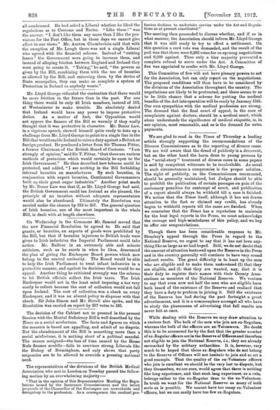Mr. Lloyd George ridiculed the contention that there would be
more friction in the future than in the past. For one thing there would be only 42 Irish members, instead of 102, at Westminster to make trouble. He absolutely denied that Ireland would have any power to impose protective duties. As a matter of fact, the Opposition would not oppose the finance of the Bill so warmly if they really thought that it was protective in character. Mr. Boner Law, in a vigorous speech, showed himself quite ready to take up a challenge from Mr. Lloyd George to point to a single line in the Bill that would enable Ireland to raise a duty against a British or foreign product. He produced a letter from Sir Thomas Pittar, a former Chairman of the British Board of Customs. "I am strongly of opinion," said Sir T. Pittar, "that there are various methods of protection which would certainly be open to the Irish Government." He then described how tobacco could be protected, and added, "I see nothing in the Bill forbidding internal bounties on manufactures. By such bounties, in conjunction with export bounties, Continental Governments built up their great sugar industries." Another point made by Mr. Bonar Law was that if, as Mr. Lloyd George had said, the British Government could tax Ireland as she pleased, the principle of no taxation without adequate representation would also be abandoned. Ultimately the Resolution was carried under the closure by 318 to 207. The general question of Irish bounties, one of the most important in the whole Bill, is dealt with at length elsewhere.














































 Previous page
Previous page